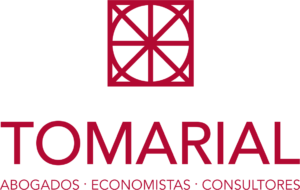As we know, all workers have the right to paid work permits, which consist of absence from the job for a certain period of time, without this implying the loss of their pay.
The beneficiaries must justify the cause to which they accept and provide adequate notice to the company, depending on the circumstances of each case.
Paid leaves are regulated in the Workers' Statute (ET hereinafter), specifically in its article 37.3, and improvements may be established through collective bargaining, such as their duration, or even grant more reasons and causes to take advantage of them.
Among the most common paid leaves, regulated by the ET, we find:
- A usual day for moving house.
- Fifteen calendar days in case of marriage.
- The essential time to carry out union functions or personnel representation.
- Two days for the death, accident or serious illness, hospitalization or surgery without hospitalization that requires home rest, of relatives up to the second degree of consanguinity or affinity. In the event that the worker needs to make a displacement, the term will be four days.
- One hour of absence for breastfeeding a child under 9 months.
As we have already mentioned, through collective bargaining these may be improved.
An example: in article 27 of the state Collective Agreement for pharmacies, 20 calendar days are granted in case of marriage, thus improving the 15 days established in the ET.
We must also take into account the option of unpaid work leave, which allows you to be absent from the job but, in this case, without the right to remuneration.
A particular case of unpaid leave: the Valencia metal trade CC, in its article 38, regulates unpaid leaves, giving the option to enjoy up to three days of leave, in case of illness of the child, as long as mother and father work, only one of them being able to opt for it. The purpose is to facilitate the reconciliation of family and work life, so that the former is not an obstacle to the normal development of the latter.
ASPECTS OF INTEREST
The computation of the use of the permits is generating doubts, since the ET itself does not mention whether the days of leave must be taken on calendar or business days.
Until a few years ago, the majority interpretation held that said permits should be taken in calendar days, thus beginning to be counted from the day of the causal event. In such a way that, if part of those days coincided with a weekend or days considered non-working, these were computed within the permit.
Mention that the ET in its article 37.3 specifies that, unlike the rest, the paid leave for getting married will be enjoyed in calendar days, which leads to interpreting that the rest of the permits will be enjoyed for effective working days.
Based on jurisprudence, we find, among others, the TS judgment of January 14, 2021. In it, the plaintiff was entitled by collective agreement to four days of paid leave for surgery on a family member. The company proceeds to grant him 4 calendar days of leave, two of these coinciding as weekly rest days. Subsequently, the worker requests the company to enjoy these two days corresponding to the weekly rest, denying the request, filing the worker's claim against such refusal.
The question raised focuses on elucidating whether the leave days must necessarily be working days or can be compensated when they coincide with the weekly rest.
The Supreme Court has determined that the permits must be taken on business days, since, as another sentence of the same Supreme Court of March 11, 2020 points out, the permit would make more sense if it is projected over a period of time in which there is an obligation to work. Otherwise, it would make no sense for its main effect to be absent from work. For this reason, the usual thing is that the permits refer to working days, unless otherwise provided by law.
In addition, when the triggering event takes place on a holiday or non-working day established by the work calendar, the very essence of the permit means that they must start on the next immediate working day.
Another condition that causes uncertainty among companies and employees when specifying said permits is the level of consanguinity required in certain cases. The most common are the first or second degree of consanguinity or affinity. In this case, it is interesting to remember the degrees of kinship:

NEW
The Family Law will soon enter into force, in which news regarding permits are announced, which could be:
- 15 paid days for registered domestic partners.
- 5 days a year to care for dependent family members.
- Parental leave of 8 weeks until the minor turns 8 years old.
- 4 days a year due to force majeure related to family responsibilities.
Paula Ordinana
Collaborator Labor Area of Tomarial


